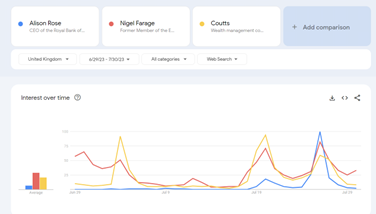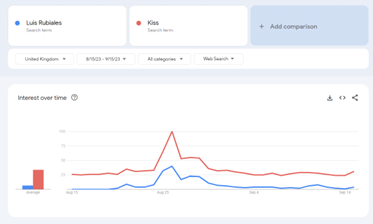As the apocryphal tale goes, Stalin, on his death bed, summoned successor Nikita Khrushchev to his office. “I have left you two letters with my wisest counsel,” the dying despot said. “Do not open the first until things are truly terrible. The second should only be opened when there are no answers to your issues.”
After an initial honeymoon, famine, financial woes, and political scheming drove Khrushchev to open the first letter. “Blame everything on me – Stalin.” This assuaged things for a while. Yet, the Cuban crisis and further famine drove him to open the second. “Write two letters – Stalin.”
While modern CEOs and politicians may balk at the advice of mid-20th century dictators, it raises key questions – how long does it take to ride out a crisis and how long can you get away with blaming previous regimes or management?
Meet the new boss, same as the old boss
Blaming previous leadership may work initially but it has limits. It depends on the tenure of previous management, and whether current management was involved also.
In politics, where the entire “management” team changes following an election, blaming the previous regime is tempting. In the financial crisis of 2009, the incumbent UK Labour government of nearly 12 years, still blamed the crisis on their Tory predecessors’ “18 years of mismanagement.”
WPP chief Mark Read recently cited predecessor Martin Sorrell’s “30 years of inactivity” for current issues. This was rejected by some commentators, highlighting that Mark has been CEO for more than five years, and worked for WPP as far back as 1989. Weighed against this, Sorrell was a dominant force in growing and leading WPP.
For companies whose previous management had short tenures, this tactic may backfire. Investors will likely decide how long is acceptable. 51% of S&P 500 CEOs have tenures of five years or less. Median tenures have fallen from six years in 2013 to 4.8 years in 2022. 13% of CEOs last less than a year.[1] Increasingly they have shorter tenures – and investors expect results quicker.
Can you still “ride out” a crisis?
While blaming previous management is one thing, riding out a full-blown media crisis is another. It used to be said if you survived a full week of crisis, the media would move on to a new story.
But the world of social media – and the polemic of culture wars – has changed that.
Take the recent Nigel Farage de-banking “scandal” in the UK. The FT first reported the issue on June 29, 2023, but Alison Rose, CEO of NatWest, didn’t resign until July 27, 2023 – a full four weeks later.
Or Luis Rubiales, the overly tactile former Spanish Football Federation chief, whose unwelcome kiss on world cup winner Jennifer Hermoso during the final on August 20, 2023, stirred a global scandal. He resigned on September 11, three and a half weeks later.
This raises key questions. Does social media recycle news – allowing issues to remain critical long after conventional media has moved on? Do culture wars mean that issues persist longer? Or do those under attack hold out longer before they resign?
Evidence is mixed
Returning to the Farage de-banking, the initial story dissipated within a week. However, a data subject access request[2] reignited the story on the July 19 and implicated Alison Rose. A week later she resigned.
The story showed the classic spikes in interest, which was rekindled by new information.

The Rubiales case differed. Rubiales had no real global profile before the incident. Elevated levels of coverage throughout the crisis reflect a continually bubbling story - with new developments sustaining the story (he even boosted the search traffic for the word “Kiss”). On August 26, FIFA suspended him; August 29, United Nations Human Rights office backs Hermoso; September 1, Spain’s national sports tribunal opens a case against him; September 8, Spanish prosecutor Marta Durantes Gil files a high court case for sexual assault.

This points to a key conclusion; it is not enough to survive the initial crisis - you must navigate the aftershocks.
It is also clear that for a crisis to persist, it must evolve. Fresh news, evidence or angles must emerge.
A critical challenge is that social media – with different perspectives and voices – offers more ways to sustain a story. This may be organic or deliberate, such as actions groups seeking to sustain a story or “cancel” individuals or companies.
But clamor alone is insufficient– it requires definite actions on the part of authorities or corporations who wield real power. In Alison Rose’s case, government and investor pressure led to her resignation. For Rubiales, a state criminal investigation prompted his downfall.
Organizations increasingly have complex governance; they have multiple stakeholders to keep happy; they have purpose, values and principles to uphold; they are sensitive to noise; they face political and social scrutiny. Crises that previously may have disappeared may now perpetuate.
Effectively preparing for a crisis
While the premise of the first letter –shifting blame– remains a legitimate tactic, it may not work for all stakeholders. Organizations must model different scenarios and stakeholder reactions.
As the complexity of modern organizations makes it difficult to mitigate all risks, preparation is essential. Organizations should have detailed plans, protocols and processes. They should have practiced scenarios and trained their teams.
This can help companies ride out the initial storm and contain and de-escalate crises.
Robust, validated and proven crisis plans can prevent the worst consequence of a crisis –the handing over of the second letter.
[1] Source: Harvard Law School Forum on Corporate Governance. “CEO Tenure Rates” Joyce Chen, Equilar… August 4, 2023.
[2] DSARs (Data Subject Access Requests) are legally-mandated requests to an organization to share what personal information and data it holds on you and are used in the EU/ UK.
Charlie Ansdell is Cognito's Chief Operations Officer, based in London

